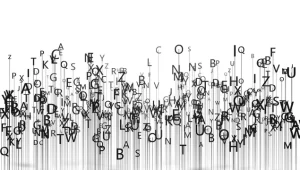 Exploring new forms of communication, Jnanendra Das sheds light on the usage of linguistic tools to create strong social bonds among close-knit groups.
Exploring new forms of communication, Jnanendra Das sheds light on the usage of linguistic tools to create strong social bonds among close-knit groups.
Do you and your friends talk in cryptic codes? Does it happen that some jokes are just funny to you and sound absurd to others? Do you often quote lines from sitcoms or Taylor Swift lyrics to make your point? There’s a term for that and Taylor’s lyrics are now a linguistic phenomenon called “fanilect”. Fanilect comes from family-lect or familect and the root word lect. This is a real thing which is not just limited to the Internet or Swifties (as Taylor Swift fans call themselves) anymore. The words of the American singer-songwriter often  remarked a “goddess” by stans, were even used during a US Senate hearing. Fanilect, similar to familect, encompasses terms from song lyrics, sitcoms, and pop culture used in daily life references. If you quote a line from Taylor’s Version to make a point, you might be using a fanilect. This feature of the Sunday Shillong crosses into “The Other Side of the Door” and delves into the growing phenomenon.
remarked a “goddess” by stans, were even used during a US Senate hearing. Fanilect, similar to familect, encompasses terms from song lyrics, sitcoms, and pop culture used in daily life references. If you quote a line from Taylor’s Version to make a point, you might be using a fanilect. This feature of the Sunday Shillong crosses into “The Other Side of the Door” and delves into the growing phenomenon.
“Modern Idiots”, “red lip classic”, “I’m the problem, it’s me”, Taylor Swift fans and lots of stans communicate in codes. But now it’s not just limited to the Swifty communities and has transcended beyond the not-so-small group. Instagram is full of “In my ____ Era” and “The Tortured Poets Department” memes. It is not just limited to Instagram or subreddits.  During a “Live Nation and Ticketmaster Hearing” in January last year, Senators on both sides exchanged cheeky references to Swift’s lyrics. Senator Richard Blumenthal defending Swift said, “May I suggest, respectfully, that Ticketmaster look in the mirror and say, ‘I’m the problem. It’s me’” referencing Swift’s song “Anti-Hero.” This made it into the Internet “hall of virality” but was also met with side eyes from hardcore Swifties as Senator Blumenthal is not a member of the inside group. #Swifties on X (Twitter) even called him cringe and remarked “Yikes”.
During a “Live Nation and Ticketmaster Hearing” in January last year, Senators on both sides exchanged cheeky references to Swift’s lyrics. Senator Richard Blumenthal defending Swift said, “May I suggest, respectfully, that Ticketmaster look in the mirror and say, ‘I’m the problem. It’s me’” referencing Swift’s song “Anti-Hero.” This made it into the Internet “hall of virality” but was also met with side eyes from hardcore Swifties as Senator Blumenthal is not a member of the inside group. #Swifties on X (Twitter) even called him cringe and remarked “Yikes”.
 Cynthia Gordon, a Professor of Linguistics at Georgetown University, is credited to be the one who coined “familect” in her 2009 book, “Making Meanings, Creating Family: Intertextuality and Framing in Family Interaction.” In the University’s video series “Ask a Professor”, she explains, “In our everyday conversations, we use certain words, shorthand phrases, and ways of speaking that only our own families understand. Sometimes it can even sound like a foreign language to others speaking the same language. These familial private languages are what linguists call a family lect.” For instance, in this writer’s home, a biscuit is called “biky,” a term still used in family conversations. Gordon believes these family lects are powerful, “When patterns of language are repeated, they create a special bond between family members who are privy to the secret code that separates them from other families”.
Cynthia Gordon, a Professor of Linguistics at Georgetown University, is credited to be the one who coined “familect” in her 2009 book, “Making Meanings, Creating Family: Intertextuality and Framing in Family Interaction.” In the University’s video series “Ask a Professor”, she explains, “In our everyday conversations, we use certain words, shorthand phrases, and ways of speaking that only our own families understand. Sometimes it can even sound like a foreign language to others speaking the same language. These familial private languages are what linguists call a family lect.” For instance, in this writer’s home, a biscuit is called “biky,” a term still used in family conversations. Gordon believes these family lects are powerful, “When patterns of language are repeated, they create a special bond between family members who are privy to the secret code that separates them from other families”.
 If families share familect, then Swifties might speak a fanilect. “In using language this way, we’re creating connections with people who share the references and who understand what’s taking place,” Gordon says. “If you’re quoting Taylor Swift, that connects us”.
If families share familect, then Swifties might speak a fanilect. “In using language this way, we’re creating connections with people who share the references and who understand what’s taking place,” Gordon says. “If you’re quoting Taylor Swift, that connects us”.
Answering the question of “How Language Unites Taylor Swift’s Fans”, the Linguistics professor explaining “fanilect” said, “Taylor Swift’s words, whether spoken or sung, become familiar to her fans over time, often being repeated in their conversations. This use of Swift’s language creates a social group rooted in fandom. In a concert setting, this connection is amplified, as fans feel united with Taylor Swift and also each other. True Swifties recognise specific references and respond appropriately, using the private language of the fan community. This language builds strong bonds among fans and marks clear boundaries of who truly belongs. Misusing or misquoting Swift’s lyrics can reveal someone as a fake fan”. Gordon emphasises that words, especially when set to music, hold significant power to persuade, inspire, and connect people within this dynamic global network of fans.
Fanilect isn’t limited to Taylor Swift. If you quote Michael Scott from “The Office” and say “That’s what she said” after every saucy remark, that’s also a fanilect; so is “Thala for a reason” attributed to MS Dhoni and the number 7. Speaking of 7, the number 13 is also significant to Swifties. Explaining it to MTV News Swift said, “I was born on the 13th. I turned 13 on Friday the 13th. My first album went gold in 13 weeks.”
In essence, both familect and fanilect are powerful linguistic tools that create strong social bonds. They enable members of specific groups to communicate more intimately and create a sense of belonging, whether among family members or fans of a particular artist or show.



